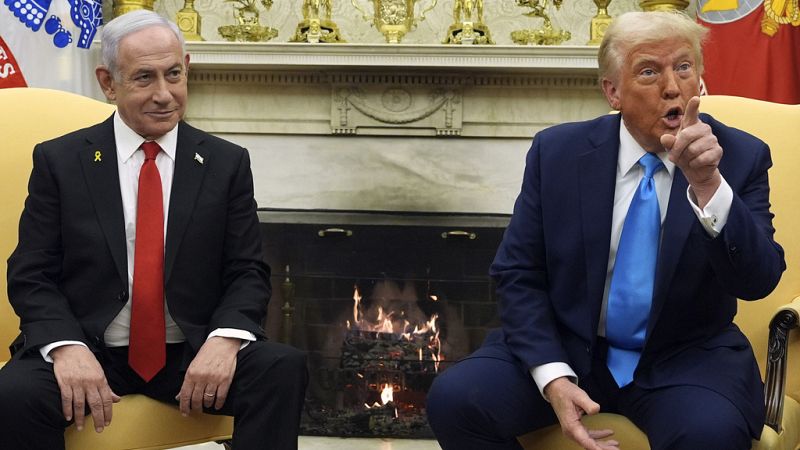Trump signs order imposing sanctions on International Criminal Court over investigations of Israel

US President Donald Trump on Thursday signed an executive order imposing sanctions on the International Criminal Court over investigations of Israel, a close U.S. ally.
Neither the U.S. nor Israel are members of or recognize the court. Israel is a close U.S. ally and the court recently issued an arrest warrant against Israeli Prime Minister Benjamin Netanyahu over his actions toward Palestinians in Gaza after the Hamas attack against Israel in October 2023.
Tens of thousands of Palestinians, including children, have been killed during the Israeli military's response.
The order Trump signed accuses the ICC of engaging in “illegitimate and baseless actions targeting America and our close ally Israel" and of abusing its power by issuing “baseless arrest warrants” against Netanyahu and his former defense minister, Yoav Gallant.
“The ICC has no jurisdiction over the United States or Israel,” the order states, adding that the court had set a “dangerous precedent” with its actions against both countries.
Trump’s action came as Netanyahu was visiting Washington. He and Trump held talks Tuesday at the White House, and Netanyahu spent some of Thursday meeting with lawmakers on Capitol Hill.
The order says the U.S. will impose “tangible and significant consequences” on those responsible for the ICC's “transgressions.” Actions may include blocking property and assets and not allowing ICC officials, employees and relatives to enter the United States.
Human rights activists said sanctioning court officials would have a chilling effect and run counter to U.S. interests in other conflict zones where the court is investigating.
“Victims of human rights abuses around the world turn to the International Criminal Court when they have nowhere else to go, and President Trump’s executive order will make it harder for them to find justice," said Charlie Hogle, staff attorney with American Civil Liberties Union’s National Security Project. “The order also raises serious First Amendment concerns because it puts people in the United States at risk of harsh penalties for helping the court identify and investigate atrocities committed anywhere, by anyone.”
Hogle said the order "is an attack on both accountability and free speech.”
Like Israel, the U.S. is not among the court’s 124 members and has long harbored suspicions that a “Global Court” of unelected judges could arbitrarily prosecute U.S. officials. A 2002 law authorizes the Pentagon to liberate any American or U.S. ally held by the court. In 2020, Trump sanctioned chief prosecutor Karim Khan’s predecessor, Fatou Bensouda, over her decision to open an inquiry into war crimes committed by all sides, including the U.S., in Afghanistan.
However, those sanctions were lifted under President Joe Biden, and the U.S. began to tepidly cooperate with the tribunal — especially after Khan in 2023 charged Russian President Vladimir Putin with war crimes in Ukraine.
Any sanctions could cripple the court by making it harder for its investigators to travel and by compromising U.S.-developed technology to safeguard evidence. The court last year suffered a major cyberattack that left employees unable to access files for weeks.
Some European countries are pushing back. The Netherlands, in a statement late last year, called on other ICC members “to cooperate to mitigate risks of these possible sanctions, so that the court can continue to carry out its work and fulfil its mandate.”
Yesterday

